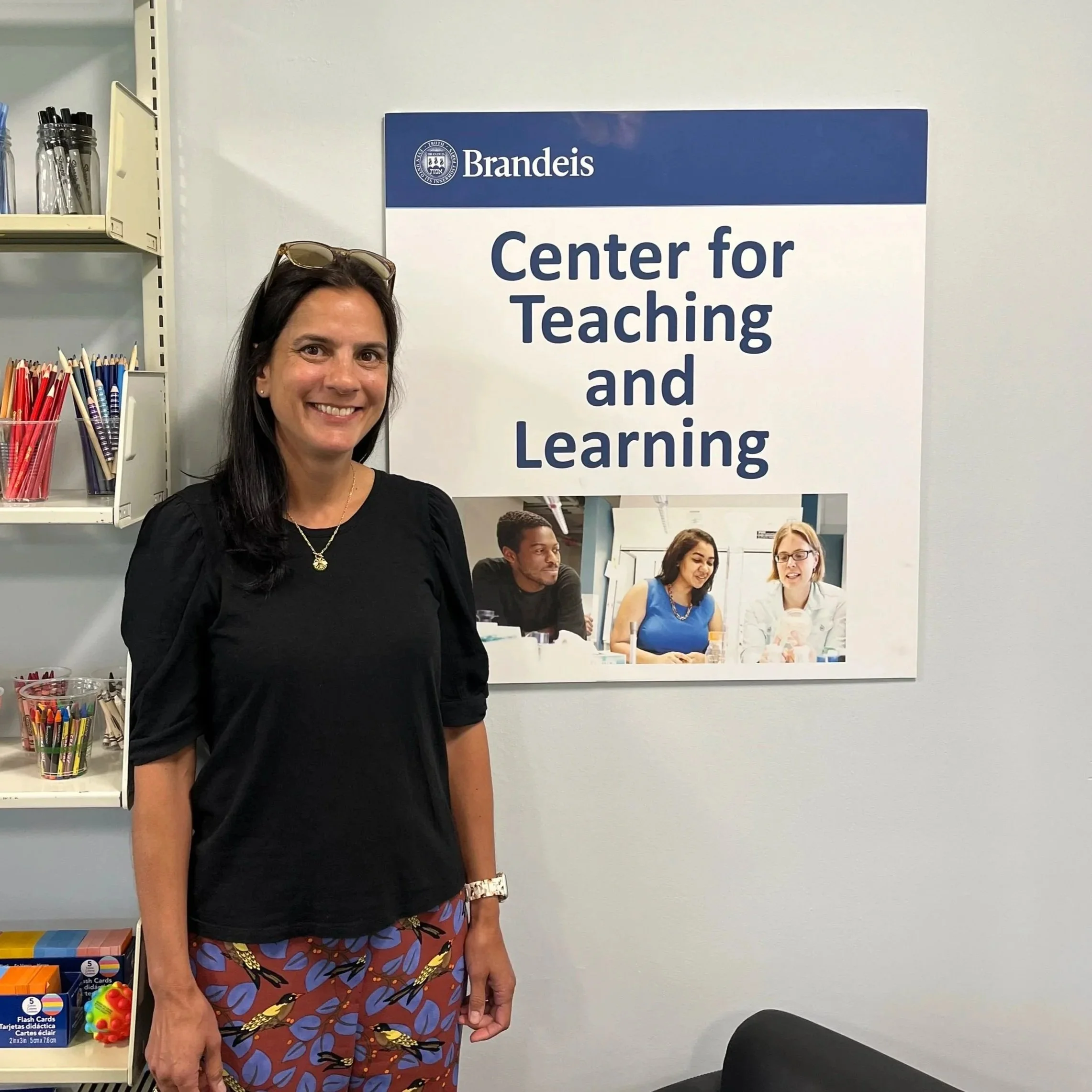Fear of feedback
Today I went to Brandeis to do my second invited workshop on the feedback-driven classroom. I teach a framework about ways to learn and grow as a teacher, and different sources of feedback you can draw on. For feedback on teaching you likely think about students first. Are the students learning? How is their experience in the course? But you also can consider your own self-reflections on your teaching, how you might learn and get feedback from your colleagues, and how you can learn from the research on teaching in your discipline.
But what if you don’t want to hear it from anyone? This can be a very real problem, especially these days when it seems challenging to have clear, honest, and respectful communication. Right off the bat one of the students said, “I heard from one of my professors that it’s not always good to ask students for feedback because it might be contradictory or you might not be able to do anything about it.”
There are a few misconceptions here. One is that if you don’t ask, you won’t find out there is a problem. Guess what? The problem will still be there. Isn’t it better to know about it, so you can address it? Being a teacher fundamentally means being connected with your students, and getting feedback doesn’t mean you have to do everything someone says. Perhaps a student says there is too much reading in the course, but you are not able to adjust the reading level. You can use the feedback as a moment to explain why the reading is important and offer some strategies on how to read effectively. It could be that students are trying to read every word without thinking purposefully about what they are meant to get out of the reading. Responding to feedback is a moment to rearticulate expectations and to explain what you are doing in class and why. If you get contradictory feedback- perhaps some students say the homework is too hard and others say it is too easy- it may speak to different levels of preparedness in your class. You can explore teaching strategies that may work in a mixed-level course. Students need to feel heard and to realize they are an important part of the success of the class. And more likely than not, you will get some feedback on things you can address easily. You will also get validation for things in the class that are going well! In a future post, I will share more detail about my favorite strategies for getting feedback from students.
When I work with instructors having challenges in their classes, they also sometimes don’t want to face the challenges themselves. The most important lens for feedback is the self: how do you as a teacher think the class is going? Keeping a journal or jotting down quick notes after each class can be helpful. Here’s an example of a 3-2-1 reflective exercise you could do after class, in which you write:
3 things that went well
2 things that you could improve upon
1 thing that stood out
In one of my meetings with a struggling instructor I asked him questions about this and he said, “I knew things were not going well but I just didn’t want to think about it!” So not only was he afraid of what the students might say, he wasn’t comfortable with what he was doing himself. And by not allowing himself to think about it, he wasn’t able to learn and grow past this hard experience. It is important to remember that if you try out a new activity as a teacher, and it doesn’t go very well, that’s ok! You can say to the students, “thanks for trying this activity, I see now why it didn’t work as well as I had hoped, given my goals, and we’ll try something different next time.” That takes courage and maturity, and will earn you the respect of your students. The goal is not to execute the perfect class each day. No matter what you do, there are always going to be some students who don’t understand the material in the way you hoped they would. In fact, being a teacher is a great opportunity to learn how to be self-reflective, to have hard conversations, to own your mistakes, to try new things, and to model that for your students, as it’s all part of the learning process. If you get feedback on something about the class you can’t change, the students just need to feel heard. “ I understand some of you don’t like ____ but here is how it helps your learning, why we are doing it, and why we can’t change it.” Ok! That’s all it takes. Everyone can move on.
Learning to solicit and address feedback on your teaching will help you in every area of your life, whether to collaborate better with your research team or think about the communication dynamics in your family. Want to learn more? Subscribe to my website, check out my guide on Becoming a Critically Reflective Teacher, and sign up for a free consultation!
